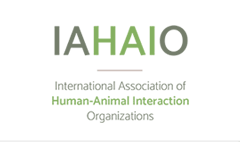Abstract
In the context of increasing concerns about student mental health and the therapeutic value of companion animals for mental health, there is limited understanding of the potential contribution of human- animal interaction in relation to undergraduate well- being. This study aimed to develop an in- depth understanding of the meaning and well- being roles attributed to human- animal interactions by undergraduate students in the UK. Using a qualitative research design, semistructured interviews were conducted with 60 students aged be-tween 18 to 23 years at a UK university of whom 39 implicated the role of companion animals in their well- being and were included in analysis using inductive thematic analysis. The most commonly reported form of human- animal interaction was contact with companion animals who either lived with participants, their families, or other friends and acquaintances. Actual and potential benefits of human- animal interaction for undergraduate students included helping students to manage a felt or experienced pressure to be independent, ameliorating loneliness and boredom, providing connections to support networks on and off campus, imparting emotional support during times of uncertainty and change, and directly facilitating social inter-action. Companion animals were considered an important continuation of and connection to students’ previous lives, which helped them to manage the university transition and maintain a positive sense of self. Barriers attributed to companion animal ownership included the lack of practicability of caring for a companion animal while at university because of living arrangements, financial constraints, and the time pressures associated with being an undergraduate student. As a result, participants described alternative ways in which students could interact with animals, which included regular and frequent service/therapy dog visitations, links to local animal shelters and zoos, and smaller companion animal presence in classrooms and in university halls. This study provides unique and tailored insight into the value of human- animal interactions for undergraduate students’ mental well- being and the ways in which this could be harnessed to promote well-being.
Recommended Citation
Khalid, Aliya; Rogers, Anne; Vicary, Emily; and Brooks, Helen
(2021)
"Human- Animal Interaction to Support Well- Being at University: Experiences of Undergraduate Students in the UK,"
People and Animals: The International Journal of Research and Practice: Vol. 4
:
Iss.
1,
Article 2.
Available at:
https://docs.lib.purdue.edu/paij/vol4/iss1/2


